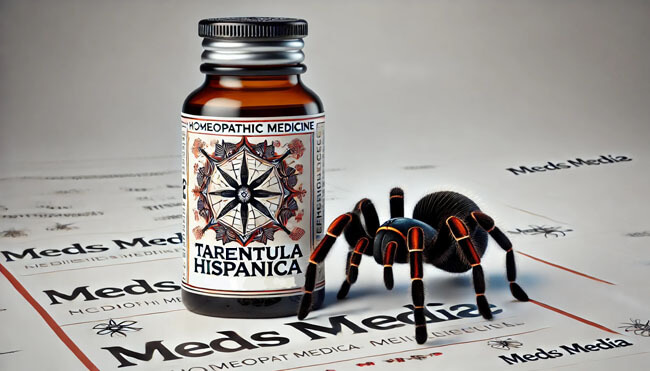
Introduction to the Pulsatilla Personality
Pulsatilla, often referred to as the “weather-cock” remedy in homeopathy, is primarily known for its deeply emotional, changeable, and sensitive personality traits. This remedy is especially suited for individuals, predominantly females, who display a gentle, yielding, and highly impressionable disposition. Pulsatilla’s emotional states can shift quickly, much like the changing weather, and this fluidity in temperament is a central characteristic of this remedy.
People with a Pulsatilla constitution are often characterized by their need for affection and sympathy, their aversion to confrontation, and their tendency to cry easily. These individuals are highly emotional and exhibit a range of physical and mental symptoms that frequently change. As such, Pulsatilla is commonly used in homeopathy to address symptoms that are variable and ever-changing, particularly in patients who feel better when exposed to fresh air.
Peculiar Symptoms of Pulsatilla:
- Disposition and Mental State: Mild, gentle, yielding disposition; cries easily, changeable mood, contradictory; desires sympathy and open air, though chilly; religious melancholy and morbid dread of the opposite sex.
- Thirstlessness: Despite complaints, there is a notable lack of thirst, which is peculiar in various conditions including fever.
- Variable Symptoms: Symptoms frequently change or alternate, often linked to emotional or environmental triggers (e.g., open air makes the patient feel better, even if cold).
- Thick, Bland Discharges: Yellow-green discharges from mucous membranes, often noted after measles or iron tonic abuse, are unique to this remedy.
- Cravings and Aversions: Averse to rich, fatty foods, especially butter; craves cold drinks despite thirstlessness.
- Unique Sensations: Sensation of pressure, such as a stone in the stomach, or tightness after meals; dislikes warm rooms, prefers open air and cold applications.
- Wants Head Elevated: Patient prefers lying with the head high or with multiple pillows, unlike many other remedies.
- Capricious Hoarseness: Hoarseness that comes and goes unexpectedly, along with a dry cough in the evening and loose cough in the morning.
- Restlessness: Pain and discomfort in limbs, rapidly shifting, leading to sleeplessness and discomfort, especially in legs and thighs.
Mental and Emotional Characteristics of Pulsatilla Personality
- Emotionally Sensitive and Timid: Individuals requiring Pulsatilla are gentle, mild, and deeply emotional. They are prone to weeping easily and often feel better after expressing their emotions through tears. This remedy is particularly suited for people who are emotionally sensitive, easily discouraged, and prone to sadness or melancholy. They dislike being alone and seek comfort in the company of others, craving emotional support and reassurance.
- Fearful and Insecure: Pulsatilla individuals often experience fear and insecurity, especially during the evening or at night. They may fear darkness, being alone, or supernatural entities such as ghosts. This deep-seated fear is coupled with a desire for safety and protection, often seeking the company of loved ones or familiar environments to ease their anxiety.
- Mood Swings: Much like the metaphor of an “April day,” Pulsatilla personalities are emotionally changeable. They can experience wide mood swings, shifting from joy to despair without any apparent cause. Their emotions are easily influenced by their environment, making them highly reactive to external stimuli and prone to internal turmoil.
- Dependency on Sympathy: A strong characteristic of Pulsatilla individuals is their need for sympathy and attention. They thrive on being cared for, and any lack of emotional support can worsen their mental and physical condition. Children with Pulsatilla personalities may seek constant attention and affection, displaying a tendency toward clinginess.
Physical Characteristics of Pulsatilla Personality
- Thirstlessness with Physical Symptoms: One of the most distinguishing physical traits of a Pulsatilla constitution is the lack of thirst, even in the presence of fever or dryness in the mouth. Despite their tendency to experience dryness, these individuals rarely crave water, a unique aspect of their physiological presentation.
- Mucous Membrane Afflictions: Pulsatilla is commonly indicated in conditions involving the mucous membranes, especially when the discharges are thick, bland, and yellowish-green. This remedy is often used in cases of respiratory infections, catarrh, or sinus problems where the discharge is profuse and non-irritating.
- Wandering Pains: Physical pains in Pulsatilla patients tend to shift location, often starting in one area and moving to another. This can manifest as headaches that travel to the face or teeth, or limb pain that shifts rapidly. This changeable nature of symptoms mirrors their emotional variability.
- Cold Sensitivity and Fresh Air: Pulsatilla patients often feel chilly, even in warm environments, and seek out fresh air to alleviate their discomfort. They may feel better when exposed to cool, open air, despite being cold-sensitive. This modality—feeling better outdoors or in a well-ventilated space—is a hallmark of the Pulsatilla constitution.
Behavioral Patterns of Pulsatilla Personality
- Mild, Gentle, and Yielding: Pulsatilla individuals are not confrontational; they avoid conflict and tend to yield to the demands and expectations of others. This trait is most evident in women and children, who may be easily persuaded or influenced by those around them.
- Changeable Preferences: Similar to their fluctuating emotions, Pulsatilla individuals often display changeable likes and dislikes. Their food preferences, emotional needs, and physical symptoms may vary from one day to the next, making it difficult to pinpoint consistency in their behaviors.
- Desire for Companionship: Social in nature, the Pulsatilla person desires constant companionship and tends to feel lonely or anxious when left alone. This need for interaction and affection can lead to clinginess or an over-reliance on close relationships.
Associated Diseases
Pulsatilla is frequently indicated in homeopathic practice for the following conditions:
- Respiratory Conditions: Pulsatilla is often prescribed for coughs, colds, sinusitis, and other respiratory conditions that involve thick, yellowish-green discharges. It is particularly suited to patients whose symptoms are aggravated indoors and improve when they are outside in fresh air.
- Menstrual and Hormonal Disorders: This remedy is commonly used for women experiencing menstrual irregularities, such as delayed, scanty, or painful periods. Pulsatilla is also effective for emotional and physical symptoms related to puberty, pregnancy, and menopause, particularly when the individual is emotionally sensitive and physically chilly.
- Gastrointestinal Complaints: Pulsatilla individuals often suffer from digestive problems such as indigestion, bloating, and a general aversion to rich, fatty foods. These symptoms are commonly accompanied by a lack of thirst and a need to loosen clothing due to the sensation of fullness or tightness after eating.
- Otitis and Ear Infections: Pulsatilla is often prescribed for ear infections, especially in children. The remedy is suited for cases where there is thick, bland discharge from the ear, and the patient feels worse at night.
Miasmatic Traits of Pulsatilla Personality
In homeopathy, miasms represent underlying disease tendencies, and the Pulsatilla personality is often associated with the Psoric miasm. Psoric individuals tend to have heightened sensitivity, both physically and emotionally. This miasmatic influence manifests in the constant need for reassurance, mood instability, and a susceptibility to developing chronic conditions, especially those related to the skin, mucous membranes, and digestive system. Pulsatilla’s affinity with the Psoric miasm is seen in the frequent changeability of symptoms, the emotional sensitivity, and the reliance on external comfort and support.
Conclusion
The Pulsatilla personality is defined by its emotional, psychological, and physical sensitivity. Characterized by a yielding, affectionate nature and a constant need for emotional support, Pulsatilla individuals often suffer from conditions that are as changeable as their moods. In homeopathy, this remedy is particularly suited for women and children who display a mild, timid disposition and who thrive on attention and sympathy. Understanding the holistic profile of the Pulsatilla personality helps homeopathic practitioners identify and treat individuals whose symptoms align with this unique remedy.
PULSATILLA PRATENSIS: HOMEOPATHIC MATERIA MEDICA – Symptoms Guide
Why Meds Media guides are different
We focus on clear, practical explanations of homeopathic and natural health topics so you can understand remedies, symptoms, and lifestyle changes in simple language.
Meds Media is an educational resource only. Always consult a qualified doctor or homeopathic practitioner before starting, stopping, or changing any treatment.
Similar Posts You may also like
Zincum Picricum Homeopathic Medicine & Personality | Uses, Benefits & Indications
Zincum Phosphoricum Homeopathic Medicine & Personality | Uses, Benefits & Indications
Zincum Iodatum Homeopathic Medicine & Personality | Uses, Benefits & Indications
Zincum Bromatum Homeopathic Medicine & Personality | Uses, Benefits & Indications
Zea Homeopathic Medicine & Personality | Uses, Benefits & Indications
Zincum Aceticum Homeopathic Medicine & Personality | Uses, Benefits & Indications
Zincum Cyanatum Homeopathic Medicine & Personality | Uses, Benefits & Indications
Zincum Muriaticum Homeopathic Medicine & Personality | Uses, Benefits & Indications
Zincum Oxydatum Homeopathic Medicine & Personality | Uses, Benefits & Indications
Zincum Sulphuricum Homeopathic Medicine & Personality | Uses, Benefits & Indications

Phosphorus Homeopathic Medicine & Personality | Uses, Benefits & Indications
Causticum Homeopathic Medicine & Personality | Uses, Benefits & Indications

Veratrum Viride Homeopathic Medicine & Personality | Uses, Benefits & Indications

Spongia Tosta Homeopathic Medicine & Personality | Uses, Benefits & Indications

Zingiber Officinale Homeopathic Medicine & Personality | Uses, Benefits & Indications

Sulphur Homeopathic Medicine & Personality | Uses, Benefits & Indications

Tarentula Hispanica Homeopathic Medicine & Personality | Uses, Benefits & Indications


